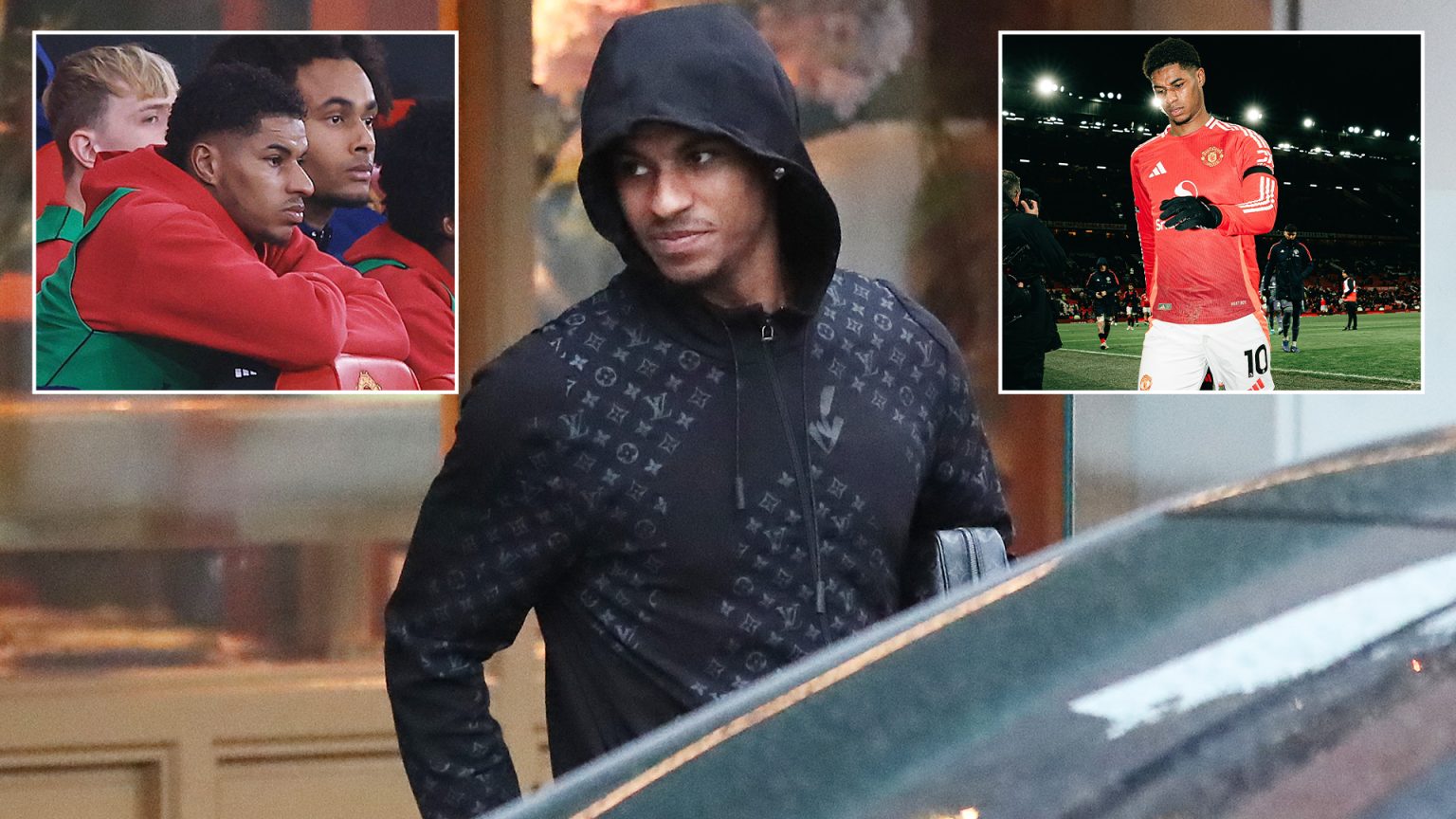Marcus Rashford’s recent declaration of his readiness for a “new challenge” has ignited speculation about his future, marking a potential turning point in his career. Having spent nearly two decades under the Manchester United umbrella, Rashford’s statement signals a shift in the dynamics surrounding his position at the club and raises questions about his motivations and ambitions. The timing of this announcement coincides with the arrival of new manager Ruben Amorim, whose tactical preferences don’t seem to align perfectly with Rashford’s skillset. This mismatch, coupled with Rashford’s public expression of dissatisfaction, particularly his exclusion from the Manchester derby squad, further fuels the narrative of an imminent departure. Despite vowing “no hard feelings,” the underlying tension suggests a fraying relationship between the player and his boyhood club.
The seeds of discontent seem to have been sown even before Amorim’s arrival, particularly following the signing of Rashford’s lucrative £325,000-per-week contract in 2023. His performance dipped noticeably after securing the new deal, with his goal output declining and his connection to the club seemingly weakening. Disciplinary issues, such as being dropped for hosting a birthday party after a derby defeat and missing an FA Cup game due to illness, further strained the relationship and hinted at a potential exit. The stark contrast between his 30 goals before the new contract and the mere 15 goals in the subsequent 18 months underscores this decline. Amorim’s arrival, with his preference for a 3-4-3 system that prioritizes narrow inside forwards, appears to be the catalyst that has brought the simmering tensions to a boil, accelerating what seemed increasingly inevitable.
Rashford now faces a pivotal decision that will shape the trajectory of his career. The pursuit of financial gain versus the prioritization of his footballing development and ambitions presents a significant dilemma. While remaining at United guarantees a substantial salary, opportunities for consistent playing time and tactical fit appear limited under Amorim’s system. Exploring options outside of Old Trafford would involve a potential pay cut, as few Premier League rivals could match his current wages. Moreover, his public declaration of intent might devalue his transfer fee, making a move to top European clubs like Real Madrid or Barcelona, who already have established attacking lineups and financial constraints, less likely. Paris Saint-Germain remains a possibility, but the competitiveness of Ligue 1 compared to the Premier League poses a different set of considerations. The financially alluring Saudi Pro League beckons, but the footballing quality and global visibility are undeniably lower, potentially hindering Rashford’s career progression.
Rashford’s primary objective should be to maximize his playing time in a competitive environment that offers opportunities to win trophies and showcase his talent to a global audience. The Premier League remains the ideal platform for achieving these goals, given its unparalleled global reach. Within the Premier League, Arsenal emerges as a potential destination that aligns remarkably well with Rashford’s needs and abilities. The Gunners’ persistent search for a prolific goalscorer, particularly one capable of playing both centrally and on the left wing, makes Rashford an attractive prospect. His versatility would address Arsenal’s need for a more clinical finisher upfront while also providing balance and width to their attack.
Arsenal’s current attacking options, while talented, lack the consistent goalscoring threat that a player like Rashford could provide. Gabriel Jesus, while a valuable asset, is not a natural finisher, and Kai Havertz is still adapting to his role as a forward. While the right flank thrives with the Odegaard-Saka partnership, the left wing, often occupied by Gabriel Martinelli, has been less consistent. Rashford, with his pace, dribbling skills, and finishing ability, could inject much-needed firepower and balance into Arsenal’s attack. While the history of players successfully transitioning from Manchester United to Arsenal is limited, Rashford possesses the attributes to defy this trend and flourish under Mikel Arteta’s guidance.
A move to Arsenal would provide Rashford with the opportunity to reinvigorate his career, proving his worth and potentially surpassing his current trajectory. It would also offer him a platform to demonstrate his capabilities to Amorim and the Manchester United hierarchy, showcasing what they might have missed. Breaking free from the familiar surroundings of Old Trafford and embracing a new challenge could be the catalyst that unlocks Rashford’s full potential, allowing him to reclaim his place among the Premier League’s elite forwards and contribute significantly to a title-contending team. The decision ultimately rests with Rashford, and it will be a defining moment in his career, determining whether he prioritizes financial security or the pursuit of footballing excellence.











